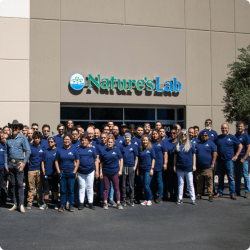

What are omega-3 fatty acids?

Omega-3 fatty acids are polyunsaturated fats or “healthy fats” that perform critical bodily functions. A fatty acid is a chain of chemical molecules composed of carbon, oxygen, and hydrogen atoms. They're essential nutrients your body can't produce, so you have to get them from your food.
Unsaturated fat and saturated fat are the two major types of fatty acids. Saturated fats are sometimes known as “bad” or “unhealthy” fats because they increase your risk of certain diseases. Unsaturated fats (polyunsaturated and monounsaturated) are considered “good” or “healthy” fats because they support your heart health when consumed in moderation.
There are three main types of omega-3 fatty acids:
• EPA (eicosapentaenoic acid)
• DHA (docosahexaenoic acid)
• ALA (alpha-linolenic acid)
What do omega-3 fatty acids do?

Omega-3 fatty acids are a vital part of your cell membranes. They help structure and support interactions between cellular body functions with a high concentration in your eyes and brain. Additionally, omega-3s provide your body with energy and support the cardiovascular and endocrine systems.
What are the top 5 benefits of omega-3 fatty acids?

Omega-3 fatty acids have many potential benefits for your health. Here are a few top ways omega-3s can impact your health.
1. Supports Heart Health: Omega-3 fatty acids can enhance various facets of heart health by reducing triglyceride levels and can increase HDL (good) cholesterol. It can also help reduce the buildup of plaques that can harden arteries. Additionally, Omega-3s support better blood circulation and contribute to maintaining a healthy heart rhythm.
2. Promotes Prenatal Growth and Development: Getting enough omega-3 fatty acids during pregnancy can support healthy brain function and eyesight in babies. These essential fats play a crucial role in early development, especially in the first trimester and beyond. While taking fish oil supplements during pregnancy or breastfeeding might support a child's cognitive growth, further studies are needed to confirm this. Additionally, these supplements may also promote better visual development in infants and can potentially lower the risk of allergies.*
3. May Promote a Healthy Inflammation Response: Omega-3 fatty acids, specifically EPA and DHA, can play a crucial role in supporting a healthy inflammatory response in the body. They can help combat inflammation and can lower the levels of certain inflammatory proteins. One review indicated that omega-3 supplements significantly eased pain and enhanced their quality of life.*
4. May Support Cognitive Health: Omega-3 fatty acids are vital for brain health, enhancing learning, boosting memory, and promoting cognitive well-being. They are crucial for both brain development and function. Omega-3 supplements have been found to enhance brain functions like memory and attention in both older adults and children.
5. Supports Joint Health: Omega-3 fatty acids play a crucial role in maintaining overall health, and they have also been found to be particularly beneficial for joint health. As essential nutrients, these fatty acids have antioxidant properties that can help fight inflammation which aids the body with easing joint pain caused by various conditions. To obtain these health benefits, it’s important to consume a diet rich in omega-3s or to consider supplementation for support.
What are the best food sources of omega-3 fatty acids?

Omega-3s are a type of essential fatty acid. There are three main types of omega-3 fatty acids: DHA, EPA, and ALA. Eating a variety of omega-3 foods is important for optimal health. Here are a few foods high in omega-3s.
- Wild Fish - Fatty, oily fish such as Mackerel, Salmon, and Seabass are some of the best sources of DHA and EPA. They are also excellent protein, selenium, calcium, and phosphorus sources.
- Oysters - Oysters contain all three major classes of omega-3s. They are also rich in zinc and vitamin B12.
- Sardines - One serving of canned sardines contains high levels of DHA and EPA. They are also a good source of selenium and vitamins B12 and D.
- Shrimp - One serving contains over .10g each of DHA and EPA. They’re also rich in protein and potassium.
- Seaweed and Algae - Algae and seaweed are trusted sources of omega-3 for people on a vegetarian or vegan diet. They are one of the few plant foods that contain both DHA and EPA.
- Chia Seeds, Hemp Seeds, and Flaxseeds - Chia seeds, flaxseeds, and hemp seeds are excellent plant-based ALA omega-3 fatty acids sources. They are also high in fiber and protein.
- Walnuts - Walnuts are an excellent source of healthy fats, including ALA omega-3 fatty acids. They contain 3.346 g of ALA per cup.
- Edamame - Edamame beans are rich in both omega-3s and protein. A half-cup of frozen edamame beans contains 0.28 g of ALA.
- Kidney Beans - Kidney beans are commonly added to meals. They contain 0.10 g of ALA per half-cup.
- Soybean Oil - Soybean oil is made from popular Asian legumes. It contains 0.92 g of ALA per tbsp and is also a good source of vitamin B2, magnesium, potassium, folate, vitamin K
How much omega-3 should I have?

The American Heart Association recommends healthy adults eat at least two servings of fish per week. Some people may not get enough omega-3 from their diet. Individuals who are vegetarian or eat a more plant-based diet often struggle to get adequate amounts of EPA and DHA. Including omega-3 supplements in your daily routine can help you reach the recommended levels.
Nature’s Lab Gold Plant-Based Omega-3 provides an alternative option for vegans and vegetarians to obtain EPA and DHA omega-3 fatty acids. The formula uses sustainably sourced marine algae to effectively incorporate essential fatty acids frequently missing from plant-based diets.*
Our Triple Strength Omega-3 Fish Oil provides essential omega-3 fatty acids from wild-caught, sustainable fish. With three times the amount of EPA and DHA fatty acids compared to competitors, this supplement is a convenient way to support heart, brain, and joint health.*
This week, take advantage of a 30% off deal when you spend $100 on your selection of Triple Strength Omega-3 Fish Oil or Plant-Based Omega-3! Use code OMEGA at checkout.
*These statements have not been evaluated by the Food and Drug Administration. This product is not intended to diagnose, treat, cure, or prevent any disease. Consumer experience may vary.
References
Hjalmarsdottir, F. (2023, January 17). 17 science-based benefits of omega-3 fatty acids. Healthline. https://www.healthline.com/nutrition/17-health-benefits-of-omega-3
Kubala, J. (2023, July 10). Omega-3 fatty acids: Benefits, uses, side effects, and more. Health. https://www.health.com/omega-3-fatty-acids-benefits-7510411#toc-may-improve-inflammation-symptoms
Omega-3 fatty acids & the important role they play. Cleveland Clinic.https://my.clevelandclinic.org/health/articles/17290-omega-3-fatty-acids







